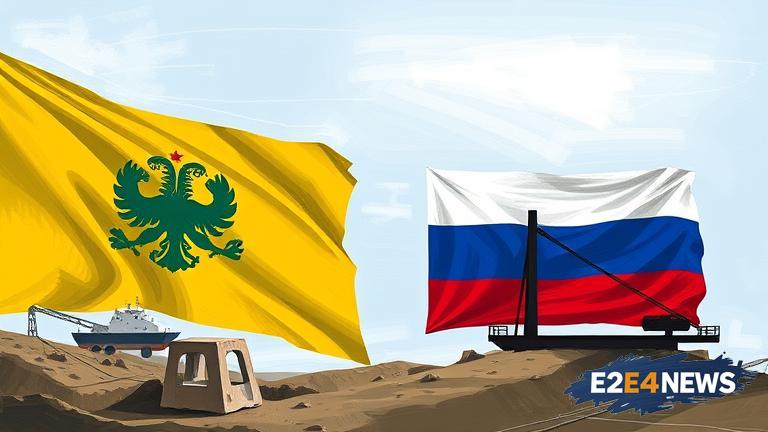Malta’s government has been treading carefully when it comes to the oil price cap imposed on Russia, as the country seeks to balance its relationships with the European Union and Russia. The oil price cap, which was introduced by the EU in response to Russia’s invasion of Ukraine, aims to limit the price of Russian oil exports to $60 per barrel. Malta, which has historically had strong ties with Russia, has been cautious in its approach to the oil price cap, seeking to avoid antagonizing either side. The country’s Prime Minister, Robert Abela, has stated that Malta will comply with EU sanctions, but has also emphasized the need for dialogue with Russia. Malta’s cautious stance has been influenced by its geographical location, with the country situated in the Mediterranean, close to both Europe and North Africa. The country’s economy is also heavily reliant on trade, with a significant portion of its exports going to Russia. Malta’s government has been keen to avoid any actions that could be seen as provocative or inflammatory, and has instead sought to engage in diplomatic efforts to resolve the conflict. The oil price cap has been a major point of contention between the EU and Russia, with Russia threatening to cut off oil supplies to countries that implement the cap. Malta’s cautious approach has been seen as a pragmatic move, aimed at avoiding any potential backlash from Russia. However, the country’s stance has also been criticized by some, who argue that it is not doing enough to support Ukraine. The EU has been keen to present a united front in its response to Russia’s invasion of Ukraine, and Malta’s cautious approach has been seen as a potential weakness in this effort. Despite this, Malta’s government has emphasized its commitment to EU sanctions, and has stated that it will continue to work with its EU partners to find a resolution to the conflict. The oil price cap is just one aspect of the EU’s broader sanctions package, which includes restrictions on Russian imports and exports, as well as travel bans and asset freezes. Malta’s cautious approach to the oil price cap reflects the country’s broader approach to the conflict, which has been focused on finding a diplomatic solution. The country’s government has been keen to avoid any actions that could be seen as escalatory, and has instead sought to engage in dialogue with all parties involved. This approach has been influenced by Malta’s historical ties with Russia, as well as its geographical location. The country’s economy is also heavily reliant on trade, and any disruption to this could have significant consequences. Malta’s cautious stance has been seen as a reflection of the country’s desire to maintain good relations with both the EU and Russia, and to avoid being drawn into the conflict. The country’s government has emphasized its commitment to finding a peaceful resolution to the conflict, and has stated that it will continue to work with its EU partners to achieve this goal. The oil price cap is a complex issue, with significant implications for the global economy. Malta’s cautious approach reflects the country’s desire to navigate this complexity, and to find a solution that works for all parties involved. The country’s government has been keen to avoid any actions that could be seen as provocative or inflammatory, and has instead sought to engage in diplomatic efforts to resolve the conflict. The EU’s sanctions package, including the oil price cap, has been designed to put pressure on Russia to withdraw from Ukraine. Malta’s cautious approach to the oil price cap reflects the country’s broader approach to the conflict, which has been focused on finding a diplomatic solution. The country’s government has emphasized its commitment to EU sanctions, and has stated that it will continue to work with its EU partners to find a resolution to the conflict.
